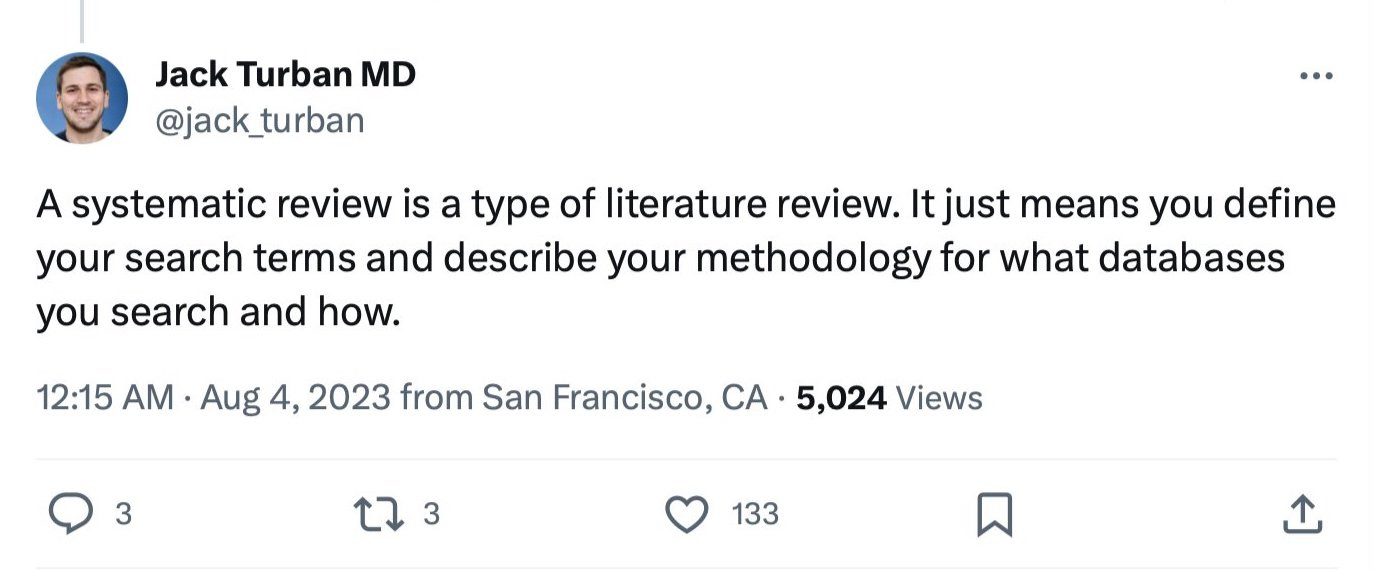Gender Medicine Monthly
October - November
This is the 8th edition of my newsletter Gender Medicine Monthly, dedicated to sharing updates related to gender medicine with a particular focus on pediatric gender medicine and the affirmative model of care, for paying subscribers.
March’s inaugural issue is free, as well as a preview of the first part of this issue. If you find the content of this newsletter valuable, please consider becoming a paid subscriber. Your support helps me dedicate my time and energy to producing quality content.
Here are some important headlines in gender medicine from October to November covered in this edition of Gender Medicine Monthly.
Deposition of prominent gender clinician reveals his profound ignorance of evidence-based medicine principles
The Netherlands begins to debate pediatric medical transition
Three new detransitioner lawsuits, 2 name American Academy of Pediatric as defendant
Finland’s leading gender clinician warns of U.S. medical scandal
Medical watch-dog releases model legislation for detransitioners
New investigative article offers rare balanced reporting on pediatric gender medicine for left-leaning audiences
Genspect releases model framework for a non-medicalized approach to gender-distress
Summary of new studies and policy updates
1. Deposition of prominent gender clinician reveals his profound ignorance of evidence-based medicine principles
Source: City Journal 11/13/23
Dr. Jack Turban is an assistant professor of child and adolescent psychiatry at the University of California, San Francisco and one of the most vocal supporters of pediatric gender medicine. He is known to many of us critical of gender medicine for producing deeply flawed research.
The ACLU recently hired Turban as an expert witness against an Idaho law that restricts medical transition services to adults only. In a seven-hour deposition led by lawyers representing Idaho, Turban was questioned about his low-quality research and how he misled the public about scientific findings.
Manhattan Institute fellow Leor Sapir went through the 177 page testimony for City Journal. Turban’s deposition revealed his general ignorance of evidence-based medicine principles. He failed to correctly define a systematic evidence review and, among other embarrassing admissions, revealed that he did not read the overview of systematic reviews on gender-related treatments commissioned by Florida because he "didn't have the time."
Sapir consulted Gordan Guyatt, the foremost expert and founder of the Evidence-Based Medicine (EBM) movement, who said Turban "does not understand what [EBM] is all about." His approach to evidence assessment "shows no respect for, or understanding of, science.”
Significance: Leor Sapir highlights that the research in gender medicine is often conducted by those with conflicts of interest, including professional, intellectual and financial stakes. They tend to overstate positive results, underreport negatives, misuse causal language, and avoid studying potential harms. This bias leads to a situation where gender clinicians, seen as “experts” by judges, appear more credible the more they are personally and professionally invested, despite this being a conflict of interest.
Dr. Jack Turban's deposition highlights this issue, showing that gender clinicians may be the least familiar or concerned with applying rigorous scientific scrutiny to their views. They often exhibit confirmation bias, a lack of interest in the scientific method, and a disregard for evidence-based medicine.
2. The Netherlands begins to debate pediatric medical transition
Source: SEGM 11/11/23
The Netherlands, the birthplace of pediatric medical transition (AKA the Dutch protocol), has seen a significant rise in young people, particularly adolescent females, seeking gender transition – which was not widely acknowledged in the country until now. Recently this issue has come to the forefront in the Netherlands due to three key developments:
A medical article in a leading Dutch medical journal
A legal analysis in a Dutch legal journal
A two-part documentary by a Dutch public broadcaster
These events have sparked a debate in the Netherlands about the practice of gender transition in minors, aligning it with broader international discussions on this topic. The Society for Evidence-based Gender Medicine (SEGM) has highlighted the main points of this debate, examining the contributing factors and considering its significance both within the Netherlands and in the context of global practices concerning youth gender transition.
Significance: The Netherlands joins public health authorities in other countries like France, Ireland, Italy, Australia, and New Zealand to have begun raising concerns or reevaluating their stances on pediatric gender medicine.
Denmark, Finland, Sweden, and England have aligned their guidelines with systematic reviews of evidence (the gold standard of evidence-based medicine) and restricted youth medical transition, emphasizing psychotherapy as a frontline response. Norway announced that it would be taking these steps soon.
The United States is quickly becoming a global outlier for their reluctance to align their guidelines with the best available evidence.






